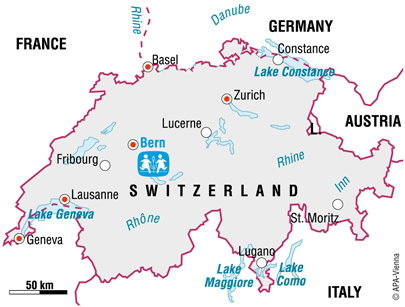
SOS Children's Villages in Switzerland has been operating as an independent supporting association since 1962. The work of the organisation is of vital importance in raising funds for many SOS Children's Villages activities in countries around the world.
For just $36/month you can sponsor a child and help provide an orphaned or abandoned child with:
- A safe and nurturing home
- A loving SOS mother
- Quality education
- Healthcare
- Nutritious food
- Clothing and toys
- All the things necessary for a bright future
SOS Children's Villages in Switzerland
SOS Children's Villages does not run programmes in Switzerland but concentrates its effort in raising funds for SOS Children's Villages abroad. Swiss sponsors have helped finance programmes from Daegu in South Korea (as early as 1964) to Tehuacán in Mexico or Makeni in Sierra Leone. The Swiss organisation concentrates on developing countries, and at present, funds are mostly directed to programmes in Africa.

A strong economy provides people with a high standard of living
The people of Switzerland have one of the highest standards of living in the world; they have one of the highest levels of wealth per head. The country has been ranked as the most competitive and innovative country in the world. People living in Switzerland have access to a modern health care system and can expect to live to an average age of 81 years, one of the highest life expectancy rates in the world.
With a strongly industrialised economy, 73 per cent of Switzerland's active population is employed in the services sector, 23 per cent in manufacturing, and three per cent in agriculture. The country's varied and stunning landscape attracts an estimated 8.4 million tourists a year: it is an important source of revenue for the areas with no industry.
The global financial crisis of 2008-2010 caused a recession in 2009, but the economy grew again by 2.7 per cent in 2010. The unemployment rate peaked at 4.4 per cent in December 2009 and decreased to 3.4 per cent in 2010.
Somewhat surprisingly, about seven per cent of the population live below the nationally-defined poverty line. And a further 15 per cent are at risk of sliding into poverty. Most of these are people who have regular employment but remain in relative poverty due to low wages. The government has taken a three-pronged approach to poverty: improving equality issues, working for better access to job training and fighting against poverty at the family level.
Situation of the children in Switzerland
There are 1.4 million children under the age of 18 in Switzerland. In a study on children among the world's richest nations, Switzerland ranked among the top five in promoting equality in child well-being. Switzerland's children ranked first in terms of material security and fifth in terms of health.
Children attend school from the age of six, but in most areas there is a free pre-school for younger children. The Programme for International Student Assessment (PISA) study of 2009 showed that the education of young adults had improved since the studies in previous years.
It is estimated that around 260,000 children in Switzerland are affected by poverty. Swiss campaigners believe that, as well as addressing the issue of family poverty, the government should do more to ensure that young people have access to apprenticeships which will lead to future employment.
